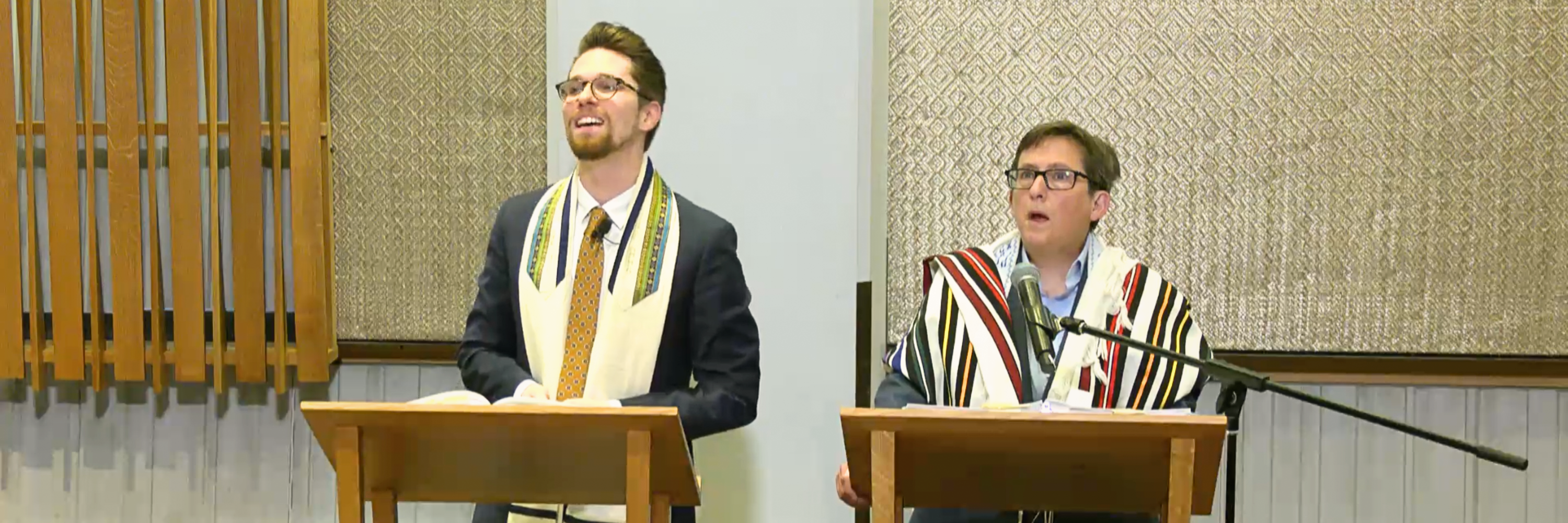
Shabbat Ki Teitzei
What does a Jewish law requiring safety features on new buildings have to do with racial justice in the U.S.?
This year marks the 60th anniversary of the 1963 March on Washington for Jobs and Freedom. Senior Rabbi Sharon Kleinbaum explored the event, and drew its Jewish connections, in her drashah on August 25.
“We have to think about the ways that people are hurt, because we as a society don’t create things to protect them. There are so many obvious examples of that… But the one I want to discuss a little bit is the issue about racism in the world.
“[Jewish law] puts the obligation to protect people not on [the] drunk guy who goes to the top of the roof, but on the person who builds the actual building. We as a society have an obligation to think about how those who are most vulnerable will be hurt by the systems that we create, that society creates—and [about how] we’re not exempt, even if we didn’t do it ourselves. That’s an incredible concept.
“[It is] a burden and a responsibility on how a society is constructed. And this is something that Dr. Martin Luther King understood deeply when he talked about the debt that America owed to African Americans. This isn’t a favor. This isn’t charity, this isn’t being nice. This is a debt that is owed. And all that we can do to pay that debt, as a society, will be what it means to live in a just world.”
Rabbi Kleinbaum also taught about Rabbi Joachim Prinz, who had been a rabbi in Berlin, and who spoke at the March on Washington right before Dr. King. Rabbi Kleinbaum quoted from his speech:
“’Neighbor is not a geographic term. It is a moral concept. It means our collective responsibility for the preservation of man’s dignity and integrity.
“‘From our Jewish historic experience of three and a half thousand years we say: Our ancient history began with slavery and the yearning for freedom. During the Middle Ages my people lived for a thousand years in the ghettos of Europe. Our modern history begins with a proclamation of emancipation.
“‘It is for these reasons that it is not merely sympathy and compassion for the black people of America that motivates us. It is, above all and beyond all such sympathies and emotions, a sense of complete identification and solidarity born of our own painful historic experience.
“‘When I was the rabbi of the Jewish community in Berlin, under the Hitler regime, I learned many things. The most important thing that I learned under those tragic circumstances was that bigotry and hatred are not the most urgent problem. The most urgent, the most disgraceful, the most shameful, and the most tragic problem is silence.
“‘A great people which had created a great civilization had become a nation of silent onlookers. They remained silent in the face of hate, in the face of brutality and in the face of mass murder.
“‘America must not become a nation of onlookers. America must not remain silent. Not merely black America, but all of America.’”
Senior Rabbi Sharon Kleinbaum delivered this drashah at Kabbalat Shabbat services on Friday, August 25, 2023 / 9 Elul 5783.
Be in community with CBST at Kabbalat Shabbat services, Fridays at 6:30 p.m. ET, either in person or streaming live on CBST’s website.
CBST is an LGBTQ+ synagogue for people of all sexual identities and genders and a joyful, spiritual, proud community.
All are welcome. 🌈✨
